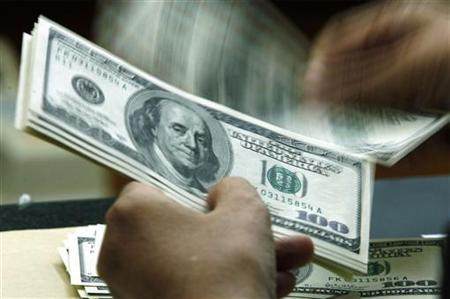How the Dollar Exchange Rate Will Be Reduced Before the Moscow Talks

Political issues always have an undeniable impact over the economy of countries. This is not only true for Iran. The only difference is that in Iran the economy is more intertwined with politics, and internal and international events, changes and developments have a direct effect on the economic sector of the country. Political economy in Iran led to the reduction of the price of the US dollar prior to the Baghdad talks between Iran and the P5+1, due to hopes for a positive outcome in these talks.
Therefore, you also believe that Iran-P5+1 talks in Istanbul and, consequently, hopes for a positive outcome in the Baghdad talks led to the reduction in foreign currency exchange rates?
The majority of our society hoped that with the agreements reached between Iran and the P5+1, the effects of sanctions and international pressure would be reduced and hence foreign currency rates would decrease. But with the continuation of negotiations in Moscow, mistrust concerning the outcome of talks was created and the price of gold coins and the rate of the US dollar went higher again.
How would you predict the movement of the gold coin and foreign currency markets between the Baghdad talks and Moscow talks, to be held in late June?
If hopes are created during this time among the majority of society regarding a positive outcome of negotiations in Moscow, the price of gold coins and the rate of foreign currency should basically decrease after a week or ten days following the Baghdad talks, and the reduction trend will continue.
The interest rate was increased when people's money was directed towards gold and currency markets. However, in relation to the implementation of the targeted subsidies plan as well as political tensions, are there still avenues to calm the domestic market and prevent some from profiteering?
Political tensions, particularly at the international level, should basically be reduced to calm the economic atmosphere through correcting improper policies implemented during the past few years. On the other hand, reviewing the targeted subsidies law will create an atmosphere conducive for production sectors to move towards reconstruction and correction in order to be able to get out of the present economic disorganization encompassing our country. Oil income should be spent on financing production sectors, but unfortunately, during the past few years, despite the increase in oil income we have witnessed stagnation in production sectors. The Iranian economy has the potential to develop if oil income is spent properly and production sectors are assisted.
What is your analysis of the shocks inflicted on the Iranian economy leading to an increase in the exchange rate of the US Dollar?
During the last thirty years, two major shocks have been inflicted on the Iranian economy as a result of which the exchange rate of the US Dollar has reached 2000 Tomans. The first shock was during the presidency of Mr. Hashemi Rafsanjani, when the implementation of the economic adjustment policy led to a sudden sharp jump in currency rates. The other shock was during the presidency of Mr. Ahmadinejad when the targeted subsidies law was implemented. If these sudden shocks were not inflicted on the Iranian economy, today, the Dollar rate would not have increased at this speed. Compare this with the time of the Iran-Iraq war when, despite a small increase in the Dollar rate, thereafter, the rate followed a decreasing trend. However, after the implementation of economic policies by previous governments, today the Dollar rate follows an increasing trend and, as long as the majority of commodities are imported from other countries, the increase in the exchange rate will only result in more impoverishment of those who live on a fixed income.

